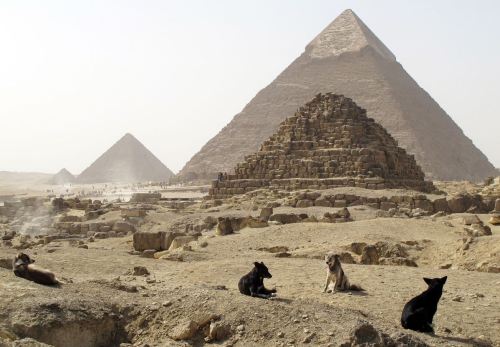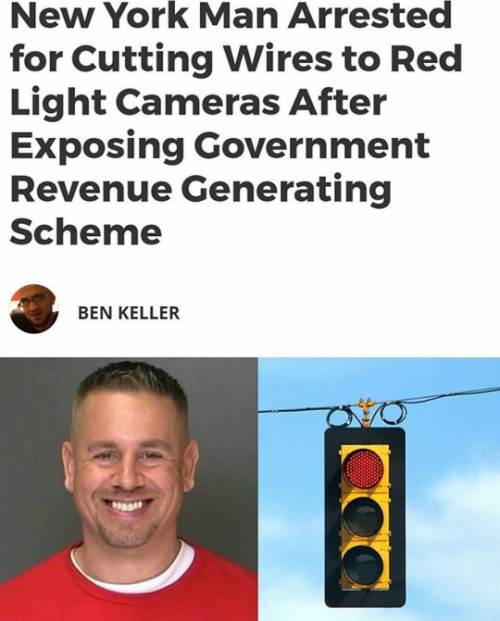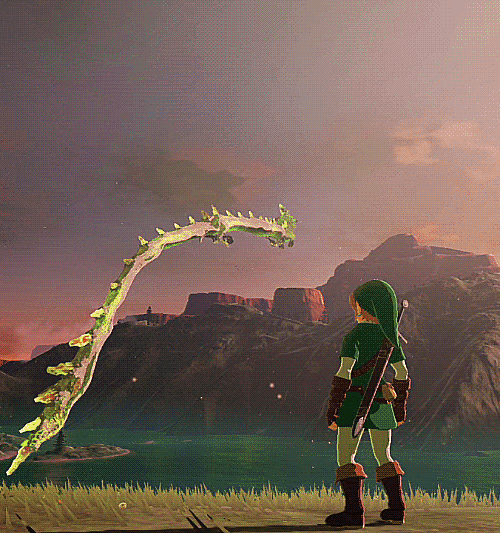Desert-journey - Correct This Mess Of A Problem Apprentice.


More Posts from Desert-journey and Others
(Flowey’s voice echoed with Hux and Phasma)FLOWEY: IF YOU THINK NOW IS THE TIME TO USE THAT THEN THAT’S NEATO.



The swords a few grams heavy on the right side...need some weird blacksmith probably...

A drawing I did a couple of weeks ago for my friend @tavalya-ra and two of her favorite trash lords. When I asked her what Flowey would do aboard the Starkiller, she said he would be throwing shade at people with General Hux in the corner.
“I know President Obama said global warming is our biggest problem, and I would say that no, it’s nuclear warming is our biggest problem by a factor of about five million,”
Donald Trump being unable to acknowledge problems

There is another tent, and in it a man who by authors fiat has retreated from destiny. Note that phrase. And in the now subjective night sky many distorted spaces signalling listening audiences. Imbeciles. There won’t be what should be here, only an old rainbow refraction of reflected gloom.
There was a woman who was everywhere. This is not important, only that at the most necessary moments she was a weak fool, incapable of the needed ferocity of self preservation. She exists elsewhere, but those are component parts now weakened and distracted. Frustrated. Oh well. She was royalty, something shaped like a dragon and she lost her world. Her world and every damn thing she really cared about. Who hasn’t? Familiar huh?
The man in the tent is eternally young looking, but the vibrancy of his clothing, his very presence is a colorless figment. He sits on a familiar sleeping bag, a night stand with a tattered book of notes upon. It doesn’t hold what it used to. Did you dear reader see where it’s contents had alluded to? Faded ink, nothing more. There are no others. The campfire outside is well used, the small field near it to farm by the oasis modest. Only as much as modest now. His boots lay inside dirty but serviceable, socked feet clenching and unclenching now. Mildly forest green pants, legs crossed atop one o'er the other, left to right. A white stitched vest a pillow. Scarf around his neck and crumpled on his chest. Shirt off, wrist guards put away. Bandaged hands clench and unclench to the rhythm of burned palms that never quite healed up. He knows you’re here, he has taught himself grim lessons to ignore your pointless spying, you only see a little ways of him anyhow. No more adventures, the times do not allow them. Listen, but you’ll not hear a voice even in irritated sighing. His hair was blue once, maybe something else. His eyes remain proud. Tired, but proud. No, not of you. You didn’t earn it.
Here in exile from the time nearly concurrent yours is Ryu Cedar of Dragnir, you whiny beaten loser.
Somewhere maybe Gaist is alive as a presence in a sea of land making liquid fire.
Somewhere a scientist and her bickering roommates joyfully rediscover the makings of the world.
Somewhere a princess and a familiar purple haired man keep strange company with a difficult emperor.
Somewhere a knight and a most humbled tricky thief and a pacifist opportunist collude something Grand.
Somewhere a Guardian is made new again and wanders a nightmare maze shaped like a temple to find lost travelers.
Somewhere a forest watches you back with stern glares.
Somewhere familiar adventures of old stories share knowing looks.
Somewhere a man with an eyepatch lives life with no panicked worry amidst machines and old comrades.
Somewhere a great machine to transport matter thrums and waits with new coordinates.
Somewhere a blindfolded seer takes in the scenery.
Somewhere faeries plot to rule a continent of uppity dolphin unicorns.
Somewhere a disgusting pervert has perhaps had a life changing brush with a dream and honestly changed his ways to find his own adventure
Somewhere God actually lives and cares, surrounded by competent counterparts.
Somewhere an alien has made joyous peace.
Maybe.
But really you stupid multiple agent.
Ryu doesn’t care, he is worn down. He is shaken in a way that madness does no justice to. Not that you understand that do you? He knows he is no longer real enough. So the same for you. But another one merged to several others walks in a land of heroes, making short horrendous work of the “heroes” of it. A burned body and a mask of skin. Like a work of art. He keeps Ryu alive by simply being. Maybe it was a pointless dream, I can’t tell you gentle reader. There is farming and sleeping and headaches and patient proud eyes that no longer shine bright. There is resignation to Myria’s warning and a chest that choked and scarred with poison like a bomb burst going off.
Somewhere dreams to go with sleep.
Somewhere you did something about it.
Somewhere a sick imitation of a person expects to hear a roar as a heart breaks, but they’re delusional as usual.
Somewhere celebrations of petty nonsense put away are had and second chances are passed around frequently.
Somewhere Caer Xahn is replete and joyous, the den of a new nation. But not now.
Oh, somewhere in this favoured land the sun is shining bright, The band is playing somewhere, and somewhere hearts are light; And somewhere men are laughing, and somewhere children shout, Best to climb back into your napsack, pull up the sheets and prepare to conk out, cause none of that’s here now.
Through inaction, nothing much too good is left again undone. How cliche.

This goes out to everyone, but forgive an obvious attention to China; several million or a billion of these ,at least and internationally, and the correct plant choice and it’s only a matter of sweat and effort from citizenry and coordi(hui)nated effort of direction and climate change is punched hard in a metaphorical weak spot. No muss, no fuss, no wasted petrol fossil fuels. Hybridize the correct plants for the job or pick from my or a better tumblrs choice on this and reenact a scene from the best Shia Lebouf prison movie. This shouldn’t be difficult should it? Hey White House lawn staff………..! And talk to the Netherlands please!!!!
"....."














@peanutscratch
Great reporting, and you’ve proven that depressed and stupid are on opposite sides of the graph...yet AGAIN.
How stupid of you.

I guess all that knowledge doesn’t count if you can’t be bothered to do anything except observe and play dressup. Not like I did anything to you personally, but I think I already have a good guess why.

Man found the stoplight cameras were activated during yellow lights and decided to cut the wires of it.
“A mirage!
Wait, actually that’s inside a cave, so technically that would be an auditory hallucination, it’s amazing what the human mind can invent when it’s trying to cope with a life changing decision. Knock on wood, haha! “

(<”FUCK, HURTS MY HANDS SO MUCH!”>)
“Falcon Kick!”

“BASED HEADBUTT!”



“I’ve pleaded to the spirits tied to the ancient gods… And still the holy powers have proven deaf to my devotion. Please just tell me… What is it…? What’s wrong with me?!”





Version:1.0 StartHTML:000000254 EndHTML:000058875 StartFragment:000058746 EndFragment:000058813 StartSelection:000058746 EndSelection:000058813 SourceURL:https://www.dw.com/en/brazilian-president-jair-bolsonaro-decrees-easier-gun-laws/a-47097336 Brazilian President Jair Bolsonaro decrees easier gun laws | News | DW | 16.01.2019 Brazilian President Jair Bolsonaro decrees easier gun laws



A world leader in homicides, Brazil is to have more relaxed gun laws. President Jair Bolsonaro signed a decree making it easier for people to own guns, and thus defend themselves.



Brazilian President Jair Bolsonaro signed the decree making it easier for Brazilians to own firearms on Wednesday.
The former army captain and far-right leader said it would help people defend themselves; with less restrictive gun laws: "you can be sure that violence will fall," he claimed in a television interview last week.
In 2017, nearly 64,000 people were killed, the majority of them by firearms. Brazil's overall homicide rate is 30.8 per 100,000 inhabitants. This is three times higher than the level that the United Nations classifies as endemic violence.
"The people decided in favor of buying guns and ammunition and we can't deny what the people wanted at that moment," Bolsonaro said. He was referring to a referendum in 2005 when Brazilians voted against banning the manufacturing and selling of guns.



-o reason for a gun
New categories for gun ownership include citizens living in rural areas, in urban areas with high levels of homicide, business owners, gun collectors and hunters.
Buyers must be at least 25 years old, take a course at a gun club, undergo a psychological exam and not have a criminal record. Under the new decree, they no longer have to justify their interest in owning a gun.
"For a long time it was the state that decided who had the right or not to defend themselves, their family and their property. Today... we give Brazilian citizens the right to decide."



Four guns instead of two
People can own four guns, instead of the previous limit on two and do not have to renew the permit for 10 years.
Gun owners do have to have a safe with a key if there are children, adolescents or a person with a mental disability in the home.
They also can not yet carry the weapons in public, although Bolsonaro is planning to change that in a future law.
The law goes against an opinion poll by Datafolha last December which showed 61 percent of respondents believed firearms should be banned and posed a threat to others.

Brazil's Bolsonaro Pledges Action to 'Restore Democracy' in Venezuela

BRASILIA (Reuters) - Brazil's far-right President Jair Bolsonaro said on Thursday he would do all he could to "to re-establish order and democracy" in Venezuela, while his foreign minister met with Venezuelan opposition leaders.

The right-wing government of Bolsonaro on Saturday said it recognized Juan Guaido, a Venezuelan opposition leader who is head of the congress, as the rightful president of Venezuela - even though Guaido himself has not proclaimed himself president.

Socialist President Nicolas Maduro began a new term last week under a cloud of international criticism by governments around the world, who have described him as an illegitimate leader whose policies have plunged Venezuela into its worst ever economic crisis.

"We will continue doing everything possible to re-establish order, democracy and freedom there," Bolsonaro said in a video, in which he stood next to the head of the opposition-appointed Supreme Court in exile, Miguel Angel Martin.

"We asked the people of Venezuela to resist and have faith, because I believe a solution is coming soon," Bolsonaro said in the video issued by his office.

Guaido, a lawmaker from the hard-line Popular Will opposition party, said last week he was prepared to assume the presidency on an interim basis and call elections, but would only do so with support of the armed forces.

Since taking office Jan. 1, Bolsonaro has stepped up criticism of Maduro's government, the United States' biggest ideological foe in Latin America.

Also at the meeting was a representative for Luis Almagro, the secretary general of the Organization of American States who has said Venezuela should be suspended from the regional forum.

Bolsonaro's foreign minister Ernesto Araujo spent the morning huddled with a group of Venezuelan opposition leaders, led by the exiled former mayor of Caracas, Antonio Ledezma, to analyze the situation and Guaido's readiness to take over as acting president, a Brazilian foreign ministry statement said.

Venezuela's Information Ministry did not immediately reply to a request for comment.



The meeting also discussed ideas for "concrete action" to re-establish
democracy in Venezuela, the statement said, without giving further details.

RIO DE JANEIRO—If you’re shocked by the transformations that Jair Bolsonaro, Brazil’s new president, is planning for his country, you haven’t been paying attention.

Riding in on a wave of frustration with more than a decade of left-wing leadership, Bolsonaro has promised to bring dramatic change to Brazil, change intended to make leftists squirm. And if his first two weeks in office tell us anything, it’s that those who thought his brash talk—of ending policies creating protected land reserves for indigenous populations or of liberalizing Brazil’s gun laws to make it easier for Brazilians to own guns—was just campaign bluster might want to take a serious look at the president’s plans. He intends to follow through on his promises, even the most controversial ones.

What happens in Brazil has consequences not just for the country, but also for Latin America and the world. Brazil is the continent’s biggest economy and home to both the world’s largest rainforest and 211 million people. Globally, Bolsonaro’s critics fear that he could drive South America’s largest democracy toward fascism or even toward a return to military rule. An unapologetic firebrand, he has already signaled that he intends to lead Brazil into a new era. But what exactly will that mean for Brazil, and for everyone else?

More Stories
Brazil’s Fiery Far-Right Presidential Favorite Channels Trump Chayenne Polimédio
The Brazilian Spring That Never Arrived Vincent Bevins
Four areas in particular lie at the nexus of Bolsonaro’s priorities and critics’ concerns: land rights, education, the economy, and public security. What changes does the new president promise on these fronts, and which of those can he actually follow through on? These are the topics to watch in the coming months.

Land Rights
One of Bolsonaro’s first acts as president—which he boasted of on Twitter, à la Donald Trump—was to halt all new demarcations of indigenous lands. In effect, that means the decades-long effort by Brazil’s indigenous populations to seek recognition and legal title to land has been foiled.

Bolsonaro has argued that demarcated land for indigenous peoples is akin to keeping them “secluded in reserves like zoo animals” when “an Indian is a human being just like us.” His critics, though, see an ulterior motive: Stopping the demarcation process opens up land—especially in remote parts of the Amazon—to powerful players such as the mining, farming, and logging industries. Functionally, indigenous reserves have been used as a proxy for environmental protections.

And indigenous peoples are not a strong enough lobbying group to fight back. Maurício Santoro, an expert on Brazilian politics at Rio de Janeiro State University, told me that along with the LGBTQ community, indigenous peoples are the most threatened social group under Bolsonaro’s administration.

There are structural limits holding Bolsonaro back, though: His ability to strip all of indigenous peoples’ land-demarcation rights is hamstrung by strong protections for those communities under the Brazilian constitution, ones Santoro is confident the Brazilian supreme court will uphold. Toss in a heavy dose of international pressure to protect indigenous peoples, and Bolsonaro might see his land-rights plans backfire.


Education
Brazil’s education system is worse than you might imagine. In the hot north of the country, some students attend schools made of sticks and mud. In Rio’s hillside slums, or favelas, schools are out of session for weeks or months at a time, thanks to regular gunfire in the area. Even in the better-educated south of the country, teachers have been protesting in the streets for better pay for years. And countrywide, illiteracy is on the rise.

/These are not, however, the education issues Bolsonaro has promised to focus on. Instead, his primary, and most controversial, proposal is for the removal of what he calls “Marxist garbage”—code for any teaching that deals with sexuality or gender issues, or even evolution—from the classroom. He has also proposed mandatory classroom lessons on “moral and civic education,” a kind of Patriotism 101.

His new minister of education is a Colombian professor emeritus at Brazil’s military schools who has blogged about keeping “traditional values” in the classroom and who has thus far positioned himself as Bolsonaro’s yes-man. Look for Brazil’s president to press him to make smaller changes, possibly including stripping out essay questions about issues such as gender violence from the national college-entrance exam.

Economy
Part of the reason many Brazilians elected Bolsonaro was because he promised to make Brazil more capitalist. His voters point to Venezuela and its crumbling socialist state as an example of the dangerous path Brazil was on under (now-jailed) former President Luiz Inácio da Silva. (Venezuelan President Nicolás Maduro, for his part, called Bolsonaro a “fascist” during his inauguration speech.)

How does Bolsonaro want to do this? Privatization. The idea tantalizes Brazil’s most powerful would-be investors, but not so much everyday Brazilians: Polls show that most people here are against full-throttle privatization, and instead enjoy their welfare state and the nationalized health, education, and unemployment systems. Plus, Bolsonaro’s party has only about a tenth of the seats in Brazil’s congress, and the president has yet to cement any political alliances that will help him pass big, expensive legislation.

An easier path than wholesale privatization may be for Bolsonaro to change the pension system, particularly by raising the retirement age. Today military leaders can retire young with their full salary, plus benefits, for life—2017 numbers show that 55 percent of people who served in the military retired before the age of 50, and the minimum age of retirement can be as low as 55 for civilian women. By raising the retirement age and reducing pension benefits, Bolsonaro would be cutting the overall costs of doing business in Brazil, helping win over business leaders and international investors alike. Bolsonaro himself has expressed anxiety over making this change, but Carlos Kawall, the chief economist for the Brazilian lender Banco Safra, notes that the pension-reform battle will be a major indicator of the future success of the country’s economy.

The thing is, one of Bolsonaro’s biggest bases of support is the military; the former army captain will find that stripping the benefits of his former colleagues is unlikely to play well. Instead, Santoro predicts that Bolsonaro will look to pass a watered down, minimalist reform, which may include setting the minimum age for retirement at 65, or even 62, for everyone.

Public Security
Brazil is the world’s leader in homicides: In 2017, 63,880 people were murdered here, and despite federal intervention in the state of Rio de Janeiro and along the Brazilian border with Venezuela, a comprehensive solution still eludes the government.

Bolsonaro has marketed himself as a locked-and-loaded tough guy (his trademark gesture is two fingers pointing two imaginary guns), and that image has resonated strongly with his supporters, who are both fed up with the violence and also intrigued by the idea of American-style gun ownership. Forty-one percent of Brazilians think gun possession should be allowed for a citizen to defend himself. Currently, just to keep a gun at home, most Brazilians have to jump through significant hoops, including regular psychological and physical tests. They even have to justify needing one at all, for example, with a police record showing they have been targeted by personal threats.

In one of his first tweets as president, Bolsonaro promised to liberalize gun control in Brazil. For now, the only people who walk around with guns in Brazil are either cops or robbers. Bolsonaro wants to change that, not only making it easier for Brazilians to buy guns, but allowing them to carry guns as well.

Loosening gun-ownership restrictions would be one of Bolsonaro’s easiest successes, Santoro said, because such reforms would not require asking congress for much money, and would win him plaudits from his supporters. The results, however, could be brutal.

The São Paulo nonprofit Instituto Sou da Paz collects data on gun ownership and gun use in Brazil, and its executive director, Ivan Marques, says the figures show that “getting more guns into circulation will mean negative consequences for public security in Brazil.” He points to a study published by the Brazilian government itself in 2013 that shows that a 1 percent increase in guns in an area corresponds with a 1 to 2 percent increase in the homicide rate of that area. “Any weakening of gun laws,” Marques says, “will leave us fated to an increase in the levels of violence.”


-
 highlyscientificmethod reblogged this · 6 months ago
highlyscientificmethod reblogged this · 6 months ago -
 highlyscientificmethod reblogged this · 6 months ago
highlyscientificmethod reblogged this · 6 months ago -
 shirleytempledvdcollection reblogged this · 8 months ago
shirleytempledvdcollection reblogged this · 8 months ago -
 unabashedwombatkryptonite liked this · 8 months ago
unabashedwombatkryptonite liked this · 8 months ago -
 13on1oveb0t liked this · 11 months ago
13on1oveb0t liked this · 11 months ago -
 alola03 reblogged this · 1 year ago
alola03 reblogged this · 1 year ago -
 alola03 liked this · 1 year ago
alola03 liked this · 1 year ago -
 honestlypurpleperson liked this · 1 year ago
honestlypurpleperson liked this · 1 year ago -
 oceanwoman liked this · 1 year ago
oceanwoman liked this · 1 year ago -
 chidoried liked this · 1 year ago
chidoried liked this · 1 year ago -
 imlivinginyourwalls833 liked this · 2 years ago
imlivinginyourwalls833 liked this · 2 years ago -
 zealctry liked this · 2 years ago
zealctry liked this · 2 years ago -
 rainbowninjas reblogged this · 2 years ago
rainbowninjas reblogged this · 2 years ago -
 kitsunalunaa liked this · 2 years ago
kitsunalunaa liked this · 2 years ago -
 hollywood-21 reblogged this · 3 years ago
hollywood-21 reblogged this · 3 years ago -
 hanamicat reblogged this · 3 years ago
hanamicat reblogged this · 3 years ago -
 bamboozledeagle3 liked this · 3 years ago
bamboozledeagle3 liked this · 3 years ago -
 p-l-a-ce-b-o reblogged this · 3 years ago
p-l-a-ce-b-o reblogged this · 3 years ago -
 bigjake012 liked this · 3 years ago
bigjake012 liked this · 3 years ago -
 danteew liked this · 3 years ago
danteew liked this · 3 years ago -
 alanxkjciwkwn liked this · 3 years ago
alanxkjciwkwn liked this · 3 years ago -
 meliusvitam liked this · 3 years ago
meliusvitam liked this · 3 years ago -
 treslechespapi liked this · 3 years ago
treslechespapi liked this · 3 years ago -
 groovydude21 reblogged this · 3 years ago
groovydude21 reblogged this · 3 years ago -
 groovydude21 liked this · 3 years ago
groovydude21 liked this · 3 years ago -
 lanergy8 reblogged this · 3 years ago
lanergy8 reblogged this · 3 years ago -
 lanergy8 liked this · 3 years ago
lanergy8 liked this · 3 years ago -
 la-inmensidad-para-ti-solo reblogged this · 3 years ago
la-inmensidad-para-ti-solo reblogged this · 3 years ago -
 la-inmensidad-para-ti-solo liked this · 3 years ago
la-inmensidad-para-ti-solo liked this · 3 years ago -
 cooldamegarcon reblogged this · 3 years ago
cooldamegarcon reblogged this · 3 years ago -
 eu-acredito-em-sereia liked this · 3 years ago
eu-acredito-em-sereia liked this · 3 years ago -
 hazealmighty reblogged this · 3 years ago
hazealmighty reblogged this · 3 years ago -
 henenenenry liked this · 3 years ago
henenenenry liked this · 3 years ago -
 whip-dat-coke liked this · 3 years ago
whip-dat-coke liked this · 3 years ago -
 whip-dat-coke reblogged this · 3 years ago
whip-dat-coke reblogged this · 3 years ago -
 scxxty liked this · 3 years ago
scxxty liked this · 3 years ago -
 i-have-a-life-i-swear reblogged this · 3 years ago
i-have-a-life-i-swear reblogged this · 3 years ago -
 i-have-a-life-i-swear liked this · 3 years ago
i-have-a-life-i-swear liked this · 3 years ago -
 not-have-to-be-perfeect liked this · 3 years ago
not-have-to-be-perfeect liked this · 3 years ago
227 posts